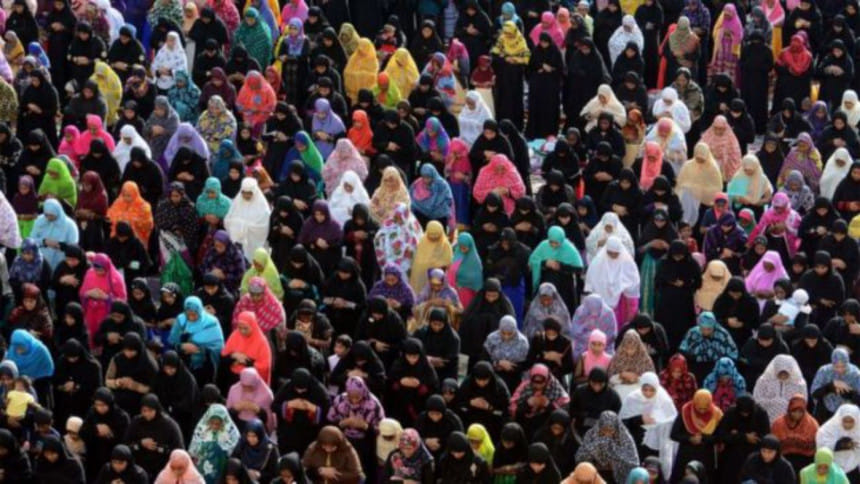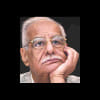Triple talaq has no place in a secular India

The Supreme Court's judgment is harsh and unequivocal. There could be no compromise on the basics of the Indian Constitution, freedom to women and men to lead their lives as they wanted. I wish the Muslim community had accepted the bar on triple talaq, which goes against the spirit of the constitution. But it looks as if the fundamentalists have been having their way.
This was even the case with Shah Bano, a Muslim woman, where the Supreme Court intervened and fixed alimony in 1985 after a long legal battle. The Muslims did not accept the judgment and argued that the courts were not at liberty to interfere in matters which relate to their personal law. According to the Muslim personal board, the issue of support to divorced women by means of maintenance and mahr is provided under the Shariat. But the Supreme Court did not accept the plea and fixed the amount for maintenance.
The triple talaq had no place in a secular society. Most Muslim countries in the world, including Pakistan and Bangladesh, have banned it. But the situation in India is such that a debate on the subject is not possible. Even a semblance of discussion is rejected outright as interference. The triple talaq continues to be invoked and the male dominance remains undiminished.
In contrast, the Hindu personal law came into being after the intervention of the first Prime Minister of India, Jawaharlal Nehru. It was he who had introduced divorce in the Hindu religion for the first time. He was strongly opposed by Dr Rajendra Prasad, who was the chairman of the Constituent Assembly and widely respected. Nehru had his way because he controlled the government machinery.
Muslims have faced a similar challenge for decades. The triple talaq has no Quranic sanction, but it has been there for a long time. Some Muslim women challenged it in the Supreme Court which has said that gender equality should be considered in this regard. The government thought of issuing a questionnaire to find out the consensus, but refrained from doing so.
The Muslim Personal Law Board vehemently opposed this move. Incidentally, it has no woman member and continues to dictate terms without any consultation with women. This has been resented by the women themselves but the Muslim Personal Law Board continues to follow a policy which doesn't even entertain the women's opinion. And thus, the fundamentalists continue to have their say.
The question is bound to come up before the Parliament some day because the different sections of the Muslim community and even others are agitated over the situation. There are social boycotts by most Muslim women. Muslim men, on the other hand, continue to dominate, even though they grant that the Prophet (PBUH) wanted both men and women to be treated as equal. However, when it comes to codifying this idea, the Board doesn't care.
How can a debate take place when the Muslim Personal Law Board is straightaway opposed to the questionnaire seeking people's opinion? Women hailing from different parts of the country have protested and demanded that they should be consulted. The Narendra Modi government is reluctant to take any step lest it should be misunderstood. Things cannot be left at that point.
Parliament should step in first to debate on the issue in both Houses and then find out how the community, particularly its women, feel about this question. Political parties understandably want to maintain silence because of electoral considerations. In many states, including Uttar Pradesh which is the largest Hindi-speaking seats with 80 Lok Sabha seats, the Muslim community seems to be the king makers.
For instance, Samajwadi Party leader Mulayam Singh Yadav was able to
garner Muslim votes since he was respected in the community who felt alienated from the Congress. In the recent assembly elections in UP, the anti-incumbency factor had come into play and the Chief Minister Akhilesh Yadav was defeated despite having Azim Khan, then his cabinet minister, who was projected as the custodian of Muslims.
Congress Vice-President Rahul Gandhi, indiscreet in his speeches, has been trying to get Muslims on his side. But he doesn't sell generally among the people and it would probably be better for Sonia Gandhi herself to lead the party. There is no Italian-tag attached to her any longer. And she attracts the crowd in her own name more than her son does. This is a challenge for the Congress which has staked its future with Rahul but feels increasingly convinced that he does not go down well with the masses. In fact, his sister Priyanka Vadra has more of a popular face than him.
It is a shame that a secular democratic country has been living with a practice like triple talaq fearing the annoyance of the community. Prime Minister Rajiv Gandhi bungled by bringing in legislation to ensure a stipend for Muslim widows. It unnecessarily fuelled the anti-Babri Masjid agitation and during the PV Narasimha Rao government the mosque was demolished. The rest is history.
In the same way, triple talaq cannot continue because it goes against the grain of what is enshrined in the constitution. In fact, it is surprising that it has lasted so long despite the directive principles to have a common civil code. The successive governments since independence have evaded the question. The Modi government may also do the same. But this is not the solution. The triple talaq will have to go, sooner or later. The Supreme Court has indicated how the constitution should be interpreted in this regard.
The Muslim community is being misled by the fundamentalists. Unfortunately, politics has also come in. The ruling Bhartiya Janata Party has its eyes on the next general election in 2019. Be as it may, the atmosphere of pluralism should not be polluted. The Supreme Court or for that matter any Court would have no ground to interfere if the preamble of the constitution is followed: that is, secular and democratic polity.
Kuldip Nayar is an eminent Indian columnist.






Comments